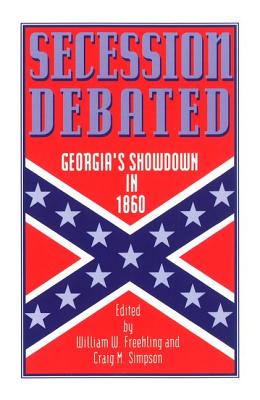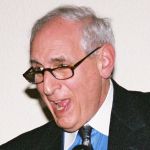

 Oxford University Press, USA
Oxford University Press, USA
Secession Debated: Georgia's Showdown in 1860


Key Metrics
- William W Freehling
- Oxford University Press, USA
- Paperback
- 9780195079456
- 8.52 X 5.58 X 0.48 inches
- 0.58 pounds
- History > United States - Civil War Period (1850-1877)
- English
 Secure Transaction
Secure TransactionBook Description
With Abraham Lincoln's Black Republican triumph in the presidential election of 1860 came ardent secessionist sentiment in the South. But Unionists were equally zealous and while South Carolina--a bastion of Disunionism since 1832--seemed certain to secede; the other fourteen slave states were far from decided. In the deep South, the road to disunion depended much on the actions of Georgia, a veritable microcosm of the divided South and geographically in the middle of the Cotton South. If Georgia went for the Union, secessionist South Carolina could be isolated. So in November of 1860 all the eyes of Dixie turned to tiny Milledgeville, pre-war capital of Georgia, for a legislative confrontation that would help chart the course toward civil war.
In Secession Debated, William W. Freehling and Craig M. Simpson have for the first time collected the seven surviving speeches and public letters of this greatest of southern debates over disunion, providing today's reader with a unique window into a moment of American crisis. Introducing the debate and debaters in compelling fashion, the editors help bring to life a sleepy Southern town suddenly alive with importance as a divided legislature met to decide the fate of Georgia, and by extension, that of the nation. We hear myriad voices, among them the energetic and self-righteous governor Joseph E. Brown who, while a slaveholder and secessionist, was somewhat suspect as a native North Georgian; Alexander H. Stephens, the eloquent Unionist whose calm dispassionate approach ultimately backfired; and fiery secessionist Robert Toombs who, impatient with Brown's indecisiveness and the caution of the Unionists, shouted to legislators: Give me the sword! but if you do not place it in my hands, before God! I will take it. The secessionists' Henry Benning and Thomas R.R. Cobb as well as the Unionists Benjamin Hill and Herschel Johnson also speak to us across the years, most with eloquence, all with the patriotic, passionate conviction that defined an era. In the end, the legislature adopted a convention bill which decreed a popular vote on the issue in early January, 1861. The election results were close, mirroring the intense debate of two months before: 51% of Georgians favored immediate secession, a slim margin which the propaganda-conscious Brown later inflated to 58%. On January 19th the Georgia Convention sanctioned secession in a 166-130 vote, and the imminent Confederacy had its Southern hinge.
Secession Debated is a colorful and gripping tale told in the words of the actual participants, one which sheds new light on one of the great and hitherto neglected verbal showdowns in American history. It is essential to a full understanding of the origins of the war between the states.
Author Bio
William Freehling grew up in Chicago, received his A.B. degree Magna Cum Laude and Phi Beta Kappa from Harvard College (where he wrote his honors thesis under Arthur Schlesinger Jr.), and his M.A. and Ph.D. from the University of California, Berkeley (where he wrote his Ph.D. thesis under Kenneth Stampp). He has taught at Berkeley and Harvard, held full professorships at Michigan and Hopkins, and endowed chairs at SUNY, Buffalo and at Kentucky.
Now retired from a university career that brought him as many honors for teaching as for books, Mr. Freehling currently writes full time at the Virginia Foundation for the Humanities as a permanent Senior Fellow. His latest publication is Showdown in Virginia: The 1861 Convention and the Fate of the Union (2010). His current projects include a sesquicentennial book of essays on the cause of the American Civil War and a biography of Abraham Lincoln.
In 2007, the Oxford University Press published the second and concluding volume of Professor William W. Freehling’s Road to Disunion, subtitled Secessionists Triumphant, 1854-1861 (a main selection of the History Book Club, a Washington Post Notable Book of the year, a New York Times Sunday Book Review Editor’s Choice, and winner of the Hodges Prize).
The first volume of Road to Disunion, subtitled Secessionists at Bay, 1776-1854 and published in 1990, was also a History Book Club main selection and was winner of the Owsley Prize. Together with The South versus the South: How Southern Anti-Confederates Shaped the Course of the Civil War (appearing in 2002 and winner of the Jefferson Davis Prize), The Road to Disunion reinterprets the causes of the Civil War and of Confederate defeat.
These books, researched on a Guggenheim Foundation fellowship, bring to climax a lifetime’s work on the Old South, begun forty years ago with the publication of Prelude to Civil War; The Nullification Controversy in South Carolina (winner of the Nevins and Bancroft Prizes).
Source: John Simon Guggenheim Memorial Foundation
Videos
No Videos
Community reviews
Write a ReviewNo Community reviews